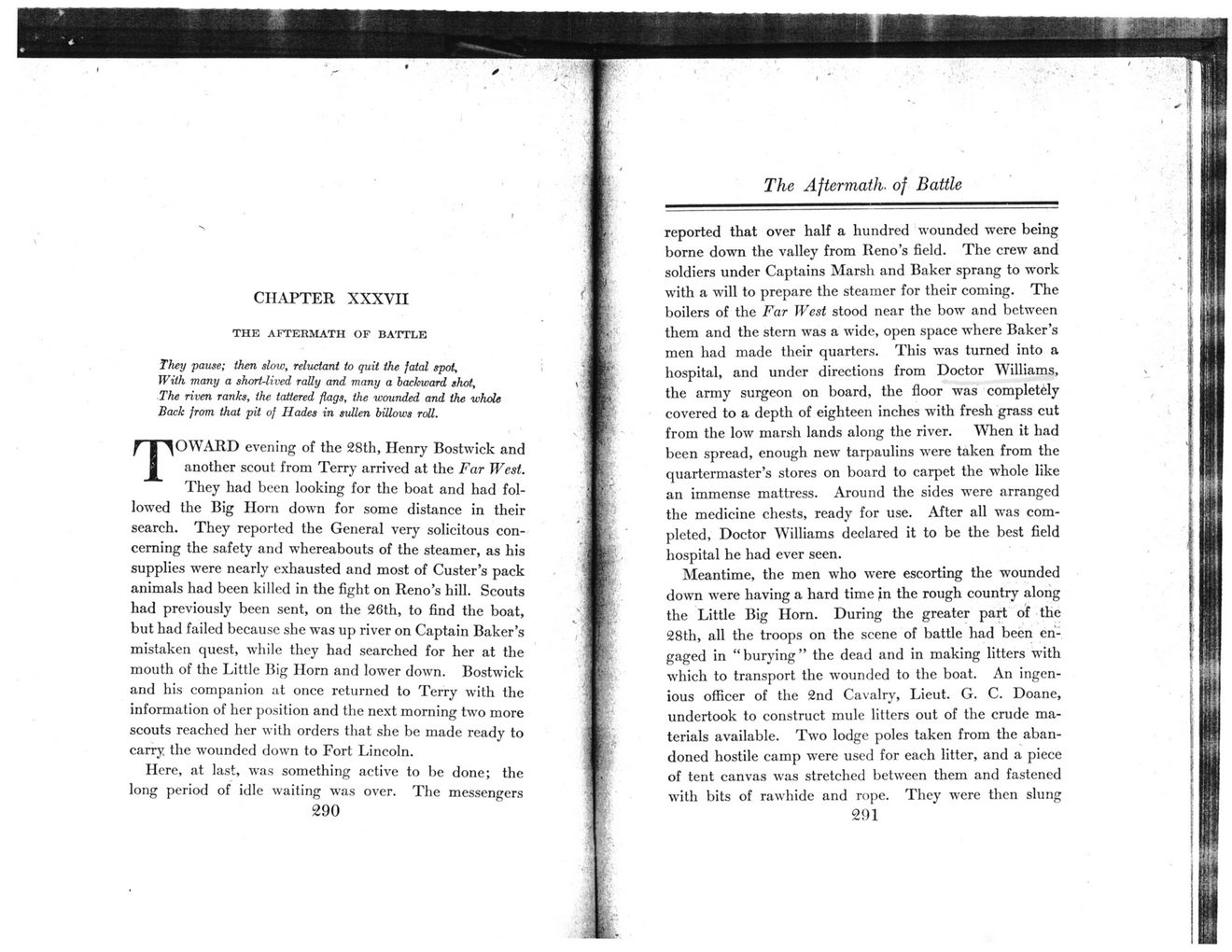This text was obtained via automated optical character recognition.
It has not been edited and may therefore contain several errors.
CHAPTER XXXVII THE AFTERMATH OF BATTLE They pause; then slow, reluctant to quit the fatal spot, With many a short-lived rally and many a backward shot. The riven ranks, the tattered flags, the wounded and the whole Back from, that pit of Hades in sullen billows roll. TOWARD evening of the 28th, Henry Bostwick and another scout from Terry arrived at the Far West. They had been looking for the boat and had followed the Big Horn down for some distance in their search. They reported the General very solicitous concerning the safety and whereabouts of the steamer, as his supplies were nearly exhausted and most of Custer?s pack animals had been killed in the fight on Reno?s hill. Scouts had previously been sent, on the 26th, to find the boat, but had failed because she was up river on Captain Baker?s mistaken quest, while they had searched for her at the mouth of the Little Big Horn and lower down. Bostwick and his companion at once returned to Terry with the information of her position and the next morning two more scouts reached her with orders that she be made ready to carry the wounded down to Fort Lincoln. Here, at last, was something active to be done; the long period of idle waiting was over. The messengers 290 The Aftermath? of Battle reported that over half a hundred wounded were being borne down the valley from Reno?s field. The crew and soldiers under Captains Marsh and Baker sprang to work with a will to prepare the steamer for their coming. The boilers of the Far West stood near the bow and between them and the stern was a wide, open space where Baker?s men had made their quarters. This was turned into a hospital, and under directions from Doctor Williams, the army surgeon on board, the floor was completely covered to a depth of eighteen inches with fresh grass cut from the low marsh lands along the river. When it had been spread, enough new tarpaulins were taken from the quartermaster?s stores on board to carpet the whole like an immense mattress. Around the sides were arranged the medicine chests, ready for use. After all wras completed, Doctor Williams declared it to be the best field hospital he had ever seen. Meantime, the men who were escorting the wounded down were having a hard time in the rough country along the Little Big Horn. During the greater part of the 28th, all the troops on the scene of battle had been engaged in ? burying ? the dead and in making litters with which to transport the wounded to the boat. An ingenious officer of the 2nd Cavalry, Lieut. G. C. Doane, undertook to construct mule litters out of the crude materials available. Two lodge poles taken from the abandoned hostile camp were used for each litter, and a piece of tent canvas was stretched between them and fastened with bits of rawhide and rope. They were then slung 291

Williams, Dr John W Conquest-of-the-Missouri-07